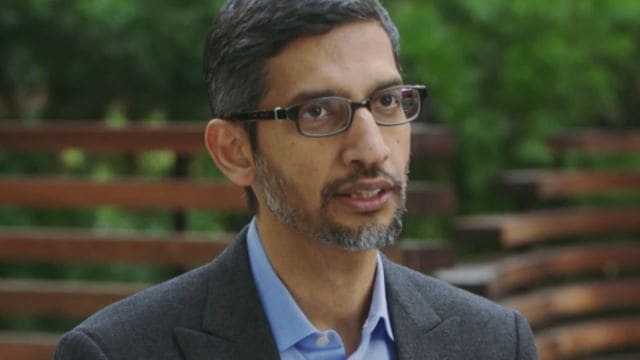Google CEO Sundar Pichai says global AI regulation should ‘draw on existing laws’
Here are the key highlights from Google CEO Sundar Pichai’s speech at the two-day Paris AI Action Summit.
 Google CEO Sundar Pichai. (File photo)
Google CEO Sundar Pichai. (File photo)Google CEO Sundar Pichai on Monday, February 11, called for regulations that address the risks posed by AI without stymying the innovation, progress, and positive impacts of the technology.
In a speech on the first day of the AI Action Summit in Paris, France, Pichai advocated for a global AI regulatory framework that is “aligned across countries” and “draws on existing laws and fills in gaps — rather than creates entirely new laws wholesale.”
 “…governments need to take a thoughtful, strategic approach to AI to drive investment in infrastructure, people, and adoption, including by governments themselves,” Pichai said.
“…governments need to take a thoughtful, strategic approach to AI to drive investment in infrastructure, people, and adoption, including by governments themselves,” Pichai said.
His remarks come as European Union (EU) lawmakers reconsider their approach to AI regulation, spurred by the breakthrough success of Chinese AI startup DeepSeek.
On Monday, French President Emmanuel Macron told a gathering at the Summit that the EU will cut back on regulation to make it easier for AI to flourish in the region, according to a report by Reuters. Henna Virkkunen, the EU’s digital chief, also reportedly vowed to implement the bloc’s landmark AI Act in a simplified, business-friendly way.
The ongoing Summit is an initiative of French President Emmanuel Macron, with PM Narendra Modi acting as co-chair. Multiple stakeholders from around the world including, representatives of governments, businesses, and civil society, are in Paris to take part in pivotal discussion on the future of AI.
‘AI is more available and accessible than ever before’
“In 18 months, the cost to process one token — or the building blocks used for processing information — has come down 97% for developers. So what used to cost four dollars per million tokens now costs just 13 cents, and I expect this trend to continue,” Pichai said in his address at the Paris Summit.
However, he also believes that advancements in AI will come from investing in foundational infrastructure such as custom chips for AI and networks of terrestrial and subsea fiber cables.
“This infrastructure enables frontier models like Gemini, with breakthroughs in processing multimodal information across text, image, video, audio and code — as well as long context and agentic capabilities. And our infrastructure enables us to make these cutting edge technologies available to developers, entrepreneurs, businesses and more,” Pichai said, while reiterating that Google has earmarked approximately $75 billion in capital expenditures (capex) for the fiscal year 2025.
Besides Google, other tech giants such as Meta, Microsoft, and Amazon plan to ramp up their AI expenditures this year. They have committed a combined capex of nearly $300 billion this year, as per quarterly earnings results. The AI spending plans of major tech companies has been met with fresh skepticism since DeepSeek’s claims of developing a cutting-edge, foundational AI model at a fraction of the cost of US rivals.
However, Silicon Valley leaders have attempted to defend the status quo. In a blog post on the eve of the Summit, OpenAI CEO Sam Altman said that current scaling laws still show that “you can spend arbitrary amounts of money and get continuous and predictable gains.”
Meanwhile, Google Deepmind’s Demis Hassabis said that DeepSeek shows “extremely good engineering” and “changes things on a geopolitical scale” but the hype around its AI model has been exaggerated
Other highlights
Pichai further said that driving adoption of AI was key in order to ensure that the productivity gains happen at scale and across the economy.
Citing a report from the World Economic Summit that estimates a majority of jobs in Europe will soon be augmented by AI, Pichai asserted the need to “help prepare the future workforce for these realities.”
“We must not let our own bias for the present get in the way of the future. We have a once-in-a-generation opportunity to improve lives at the scale of AI,” Pichai said in conclusion.







